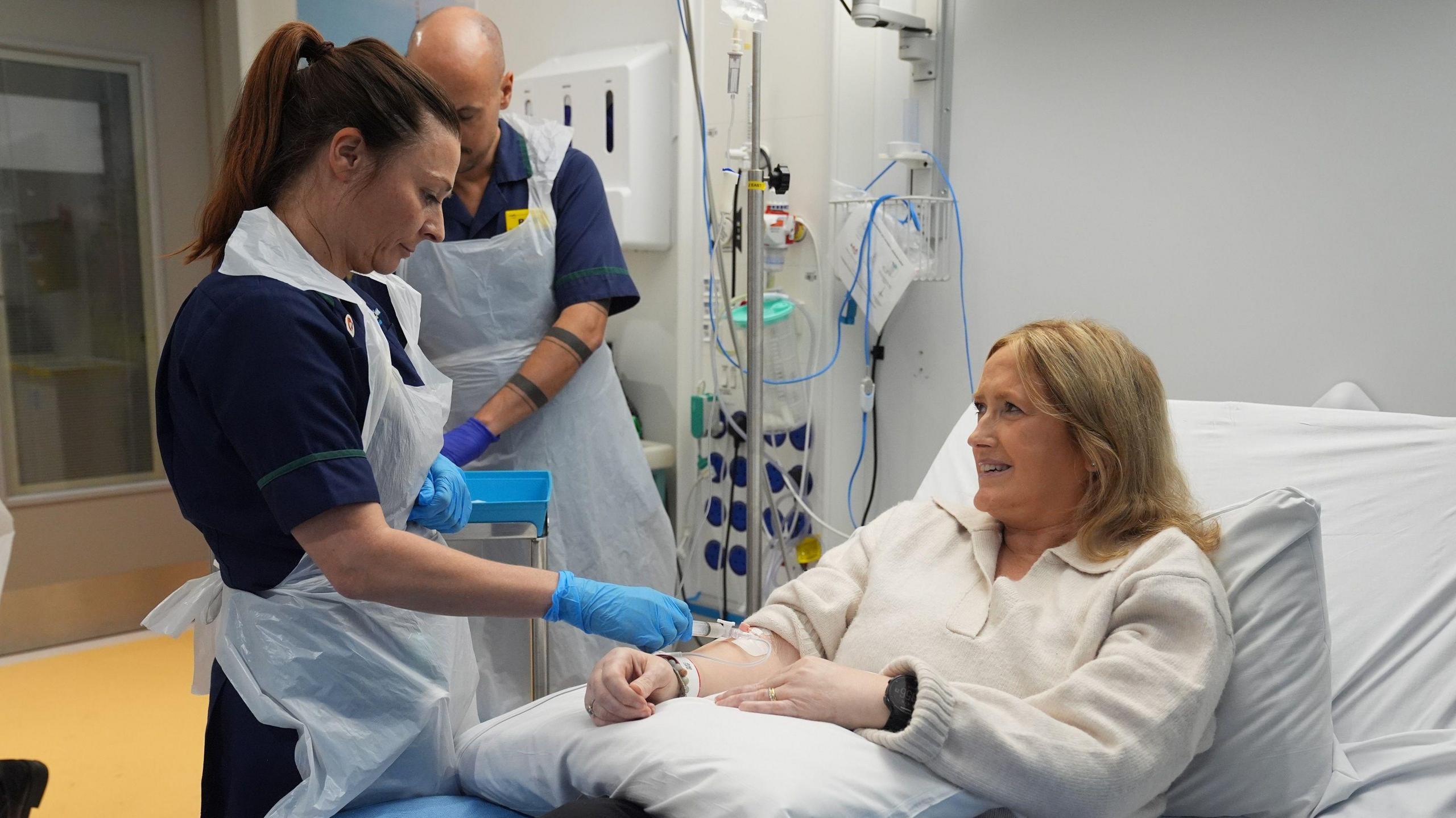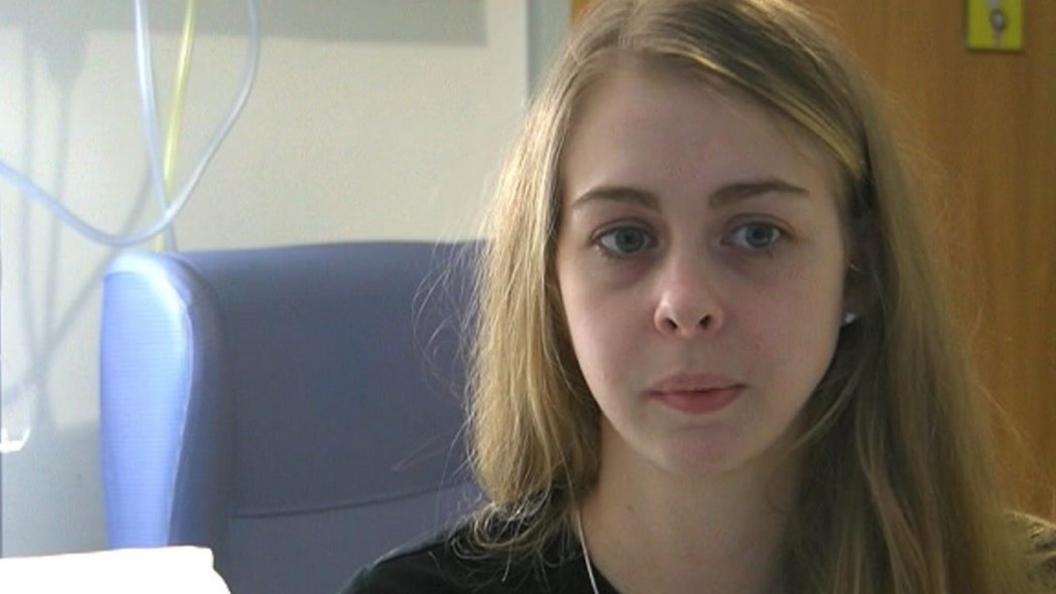Hope of end to lupus after rollercoaster treatment

Katie Tinkler underwent treatment in November
- Published
A woman who underwent "revolutionary" treatment for lupus said it was a rollercoaster but she was hoping to go into remission from the disease.
Katie Tinkler, from Guildford, took part in a trial which looks at "repurposing" some of the body's immune system cells to try to destroy those causing lupus.
She is one of three patients in the UK to have received CAR T-cell therapy for the most serious form of lupus, external, a condition that can be life-threatening and cause damage to the heart, lungs, brain and kidneys.
The mum of three, and former fitness instructor, told BBC Radio Surrey the therapy in early November was "very full on" and she was now at home recovering.
Ms Tinkler's main symptoms were severe joint pain and fatigue, while in the past 10 years she had been affected in other parts of her body including her kidneys and heart.
"It's difficult to live with," she added.
The NHS trial, led by University College London Hospitals NHS Foundation Trust and University College London, follows one in Germany where patients who underwent the therapy more than a year ago are now in remission.
Ms Tinkler, who has had lupus for 30 years, said it was a "hard treatment" to go through but something she knew her body really needed.
"I don't know how long it would have carried on under fire, as it has been in the last decade," she said.
The treatment included three days of chemotherapy before the cells were put back into her body, after which Ms Tinkler said: "It was a bit of a rollercoaster."
Claire Roddie, a consultant haematologist, said the revolutionary "one-and-done" treatment is effectively "rebooting" the immune system to switch off the lupus process.
"Instead of using conventional drugs, it's taking the immune system and weaponising it against the underlying cause of the lupus," she said.
She said although it was early, they were hopeful of repeating what had been seen in the German trials.
Follow BBC Surrey on Facebook, external, and on X, external. Send your story ideas to southeasttoday@bbc.co.uk, external or WhatsApp us on 08081 002250.
Related topics
- Published17 February 2023

- Published1 April 2021

- Published24 February 2016
